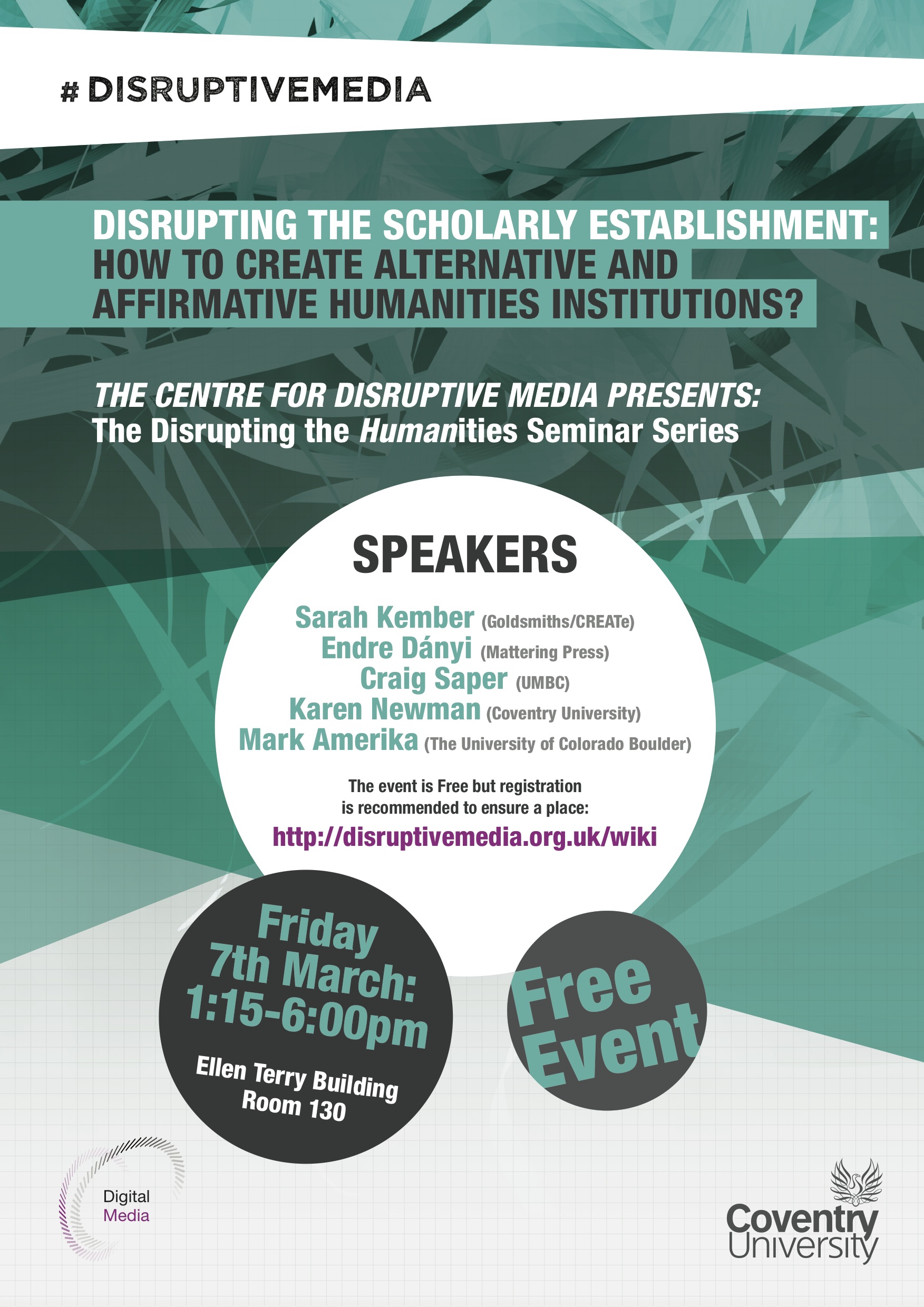In this series of events the Centre for Disruptive Media critically explored the heritage that accompanies the present-day Humanities, whilst reflecting on a possible ‘open’, alternative and affirmative future Humanities that questions its own humanist legacy. This future does not necessarily need to be a distancing of the present humanities, where its history already provides the seed for a radical self-critique, where an inherent post-humanities has, as can be argued, always already been a part of its proclaimed ‘otherness’. In this sense a posthumanities should then be envisioned as ‘more of a mutation or intensification of elements, dynamics and potentials already present in the humanities’ (Gary Hall).
This series focused in particular on ‘doing’ scholarship in a ‘posthumanities’ context, focusing on what a posthumanist praxis or performance of scholarship might entail whilst not neglecting the media, institutions and economies that we use to communicate and distribute our research. This leads to the following questions: How can we design new futures for the performance of scholarly research, communication and publication practices? What are the underlying humanist legacies within our performance of scholarship and how can we critically engage with these from a posthumanities perspective? How can we think of foundational concepts and practices such as authorship, texts, the book, copyright, the university, and the conference differently, whilst questioning the political economy, the aesthetics and the methodologies that came to accompany these humanistic institutions? How can we aid in a practical posthumanist critique of these humanist notions, where here again posthumanism is seen as ‘humanism’s ongoing deconstruction’ (Stefan Herbrechter)? How can we position the interdisciplinary field of the humanities in such a way that it remains open for new contexts and situations, new tools and technologies, and new forms of life and self? This is all the more important in a time where the value of the humanities remains highly contested, and where it is of strategic importance for the humanities to ‘mutate’ in order to battle ‘increasing irrelevance’ (Rosi Braidotti). This series of events thus takes a critical look at how we as researchers should ‘do’ research in a post-anthropocentric world and the ethics, politics, and economics involved in these networked, and relational processes. It is interested in exploring amongst others the following topics:
- Rethinking scholarly communication and publishing practices
- The boundaries between art/literature and scholarship
- The boundaries between research and education
- Practice-based research
- The boundaries between the Two Cultures
- The aesthetics and poetics of scholarship
- Radically open humanities
- New forms of offline and online (multimodal) publishing
- New radical humanities methodologies
- The ethics and pragmatics of scholarship
- Authorship and authorial functions and practices
- The political-economy of the university, scholarly publishing, education
- The relationship between academia and society at large
- Issues of plagiarism and piracy
- The research/presentation/publication divide
